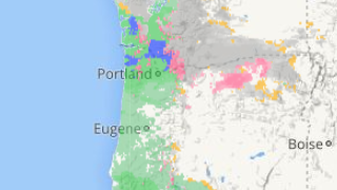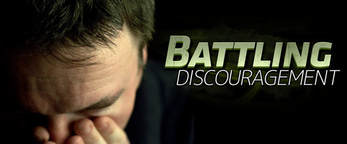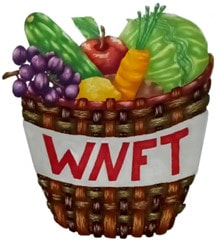 Like it or not, the season has changed. That doesn't just mean that Christmas merchandise is already hitting retail shelves (bah, humbug). It also means the weather has taken a dramatic turn. Rain. Wind. Thunder. Flooding. Power outages. True, we've got it very good compared to Puerto Rico, Florida, and Texas, but it's definitely chilly. Dark in the early evening. The sound of the furnace kicking on in the wee hours. Pulling the crock pot out. Keeping a mug of something warm nearby all day. Halloween costumes under construction. I love this time of year! Who doesn't? The people without shelter, of course. The people who have lost their apartments due to sudden rent hikes, who don't know how to be homeless, who never considered it would happen to them. The working poor. The families that have to choose between gas for their homes or gas for their cars. The elderly and disabled who didn't think to keep a tent or waterproof clothing because they felt safe. Unfortunately, nobody is safe. NPR recently reported that 40% of Americans cannot accommodate a $400 emergency. That means a blown transmission can cost someone their home. That having to stay home with a sick child for a week can result in a lost job, which balloons into homelessness in a matter of days. Nearly half of all children in Oregon are experiencing food insecurity. Now, that doesn't necessarily mean that they're going to bed hungry every night (although many are). It means that families cannot juggle living expenses, and getting help with food helps keep many from crossing the tipping point. Food stamps, emergency food pantries, and free meal programs are critical to a tremendous number of our neighbors. Of course, friends are embarrassed to admit that they can't make ends meet. That somehow their obsolete career or reduced work hours make them failures. We don't know who is huddled under three sweaters because they can't pay the heating bill, or who is trying to keep a positive attitude about the empty pantry being an opportunity to clean the shelves. I didn't realize how worn out and thin my clothes were, but my mom noticed, and she bought me a few new basics. I never would have thought that a long-sleeved shirt and slacks without any holes would be a luxury, but they are. My $800-a-month disability check would have me living in a box if it weren't for family. As we start the seasonal baking and nudge the thermostat up, I hope we stay aware of the half of our city that can't do either of those things. I hope we tuck away a few dollars to donate, or start a box of a-can-a-day foods that we can take to our neighborhood emergency pantry. Many of my friends are making as many sandwiches as they can afford, and then handing them out to the tent camps and new tiny home communities, where people are huddled with minimal resources and just their courage to keep them from despair. Every day, especially in the cold season, it does us well to take a moment for a thought of the other guy. To write down that little idea that might help one neighbor stay warm or eat well. To take a small action, any action, that can snowball into hope for innumerable strangers.
0 Comments
 Here in the developed world, you would think that everybody would have access to food, even the very poor. It's true, there are free meal programs, emergency pantries, food stamps, and more. I've heard people say that in Portland, nobody has to go hungry. But they still do. The Oregon Food Bank buys foods in bulk and sells it to various hunger-relief charities. Yes, they sell it. They recently started offering all the fresh produce for free, but everything else comes at a price. So the charities have to be funded, and with limits on funding, they have to set up guidelines regarding who is allowed to receive food, and limits as to how often those recipients can be helped. OFB's free produce is an excellent improvement. Dubbed Free Alliance, the program partners with sellers for more donated fresh food, allowing the food bank to pass it on at no charge, in order to increase nutrition of the food being given to people in need. Because hunger itself really isn't the biggest problem -- it's malnutrition. There's always bread. I've driven downtown and offered leftover bakery items to people on the streets. Sweets are a big hit, as their brief shelf life makes them harder to distribute. But bread, bagels, and rolls are everywhere, and street folks often say thanks but no thanks to more bread, especially hard breads that aggravate already-under-cared-for dental problems. (Why is it that we can provide free medical care, but no dental services?!) Man cannot live by bread alone, the bible tells us. It's literally true, regardless of religious meaning. Nature requires a variety of fruits, vegetables, and protein sources to build healthy bodies, and bread is mostly just extra calories. The calories help, especially for people who don't have access to anything else. But consuming calories isn't the same as being nourished. That free produce that OFB is offering? Yeah, that only goes to partner agencies. If you want food from OFB, you have to be a 501c3, have adequate storage and transportation, submit an application, and attend a class. After all that, they select partner agencies. I went through the process and was declined. This year, they aren't accepting any new partner agencies. So even though there is a lot of food in Portland, there isn't necessarily a lot of nutrition available to the very poor. Even though there are hundreds of volunteers actively working to provide food to everyone in need, we rely on donations, and few people are donating meat, produce, and dairy products. We end up cooking meals that are heavy on rice or pasta, flavored with what little meat we can get, and supplemented with meager vegetable offerings. Nobody has to go hungry in Portland, but malnutrition is a whole different story.  I haven't posted in ages, mostly due to my daughter's wedding, the house remodel, and preparing for my first grand-baby, which has all been joyful. But it's also because it's hard to create meaningful content when the world is discouraging, and anyone who keeps up with news and world affairs and isn't discouraged is living in a fantasy. I cope by hunkering down and working on the small things I can control and impact. Waste Not Food Taxi is poised to become a major force and solution in the greater Portland area, which is both a dream come true and a terrifying prospect. If all three counties' waste management departments, as well as Metro, start referring businesses to us for help with their food waste, we're going to not only need all the volunteers we've been signing up for the past year, we're also going to need managers, coordinators, team leaders, and a primary contact in each of the 100 zip codes in our territory. So I'm learning that a really great antidote for discouragement is having a lot of meaningful work on my to-do list. Getting the rest of the baseboards painted isn't enough to pull me out of a funk, but methane emissions from wasted food sure is. Knowing there are hundreds of people falling through the cracks of our society because getting excess food to them is inconvenient really lights a fire under me. Feeling temperatures dip into the low 40s at night reminds me that thousands of people can't afford heat, or don't have access to a warm room or even an adequate jacket. I can't solve all the problems in our world. I can barely cause a ripple. But everyone can do something, and in doing something we can reignite our sense of hope, of value, of courage. One small act of kindness, one changed habit at home, one shared success story can carry us through the darkest times, together. What can you do today? |
AuthorSusie Snortum is passionate about improving society's compassion for meeting basic human needs -- food, shelter, clean water, and dignity. Archives
September 2020
Categories |
We appreciate your support!
Hours
|
Telephone
|
Email
|
ADDRESS: 17850 NW Park View Blvd, Portland, OR 97229 United States

 RSS Feed
RSS Feed